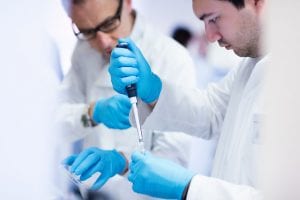Are the white working-class an underrepresented group in science?
By qtnvacl, on 27 April 2017
By Lucy Yeomans, Doctoral Researcher on the ASPIRES 2 Project
Campaigns to improve diversity in science have often focussed on gender, with the lack of women participating in Physics being an ongoing concern within science education policy and practice. The work of ASPIRES has certainly made contributions to these debates, but also advocates a more intersectional approach to understand gendered, classed and racialised inequalities in science fields. Prior attainment has often been raised as the most reliable determinant of future science participation, however even when attainment has been taken into account students from lower socioeconomic backgrounds are less likely to pursue science pathways than their peers. The government’s recent concerns regarding white working-class underachievement in education as a whole begs the questions: are the white working-class an underrepresented group in science? If so, how can we make sense of why this might be? Is it because, as has been suggested in policy discourse, they suffer from a deficit of aspiration? Do they simply lack the academic attainment to enable their future success in science?
As a doctoral student working on the ASPIRES project my research aims to explore the sociocultural factors which may influence white working-class students’ future science participation. I am currently in the third year of my study, and having confirmed that white working-class students are indeed underrepresented in post-compulsory science fields, I have drawn on the ASPIRES longitudinal interview and survey data to investigate whether white working-class students are less likely to conceive science as being ‘for me’ and whether this is a consistent construct or something that changes over time.

As in the wider ASPIRES project, my analysis so far has led me to reject the ‘deficit aspiration’ discourse and move beyond the rationale of prior attainment as the sole important determinant of future science participation. I am currently exploring white working-class participants’ (now aged 18) histories of engagement in science outside of school both to determine their levels of ‘science capital’ and to see how they differ, or correspond, with students from different sociocultural backgrounds, including looking for differences in gender. The next step will be to look at participants’ aspirations in science and how they may change when students leave primary school and progress through secondary school.
Access to participants’ interviews dating from their final year of primary school through to their final year of compulsory education has provided unparalleled insight into the evolving values and dispositions of these white working-class students as they navigate various changes in themselves and their environments. Through this research I expect to provide some improved understanding of how the changes, and the differential strategies used by students of different sociocultural backgrounds to manage these changes, inform white working-class students’ non-choice of science. Widened access to higher level science subjects is important for citizens operating in an increasingly sophisticated technological world, while a diverse scientific workforce is important for economic prosperity and for reasons of social justice. I hope that my research will provide some useful and important new insights for policy and practice.
Lucy Yeomans, Doctoral Researcher on the ASPIRES 2 Project
 Close
Close



